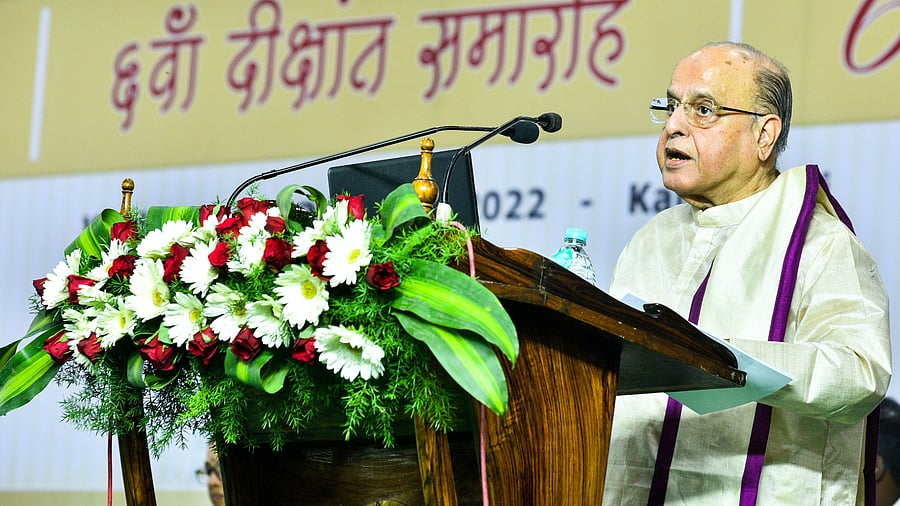
Credit: Special Arrangement
Bengaluru: More than 10 years before he was appointed the head of the 10-member High Level Working Group on the Western Ghats (HLWG), K Kasturirangan, then secretary of Department of Space, took keen interest in the ambitious project of mapping the biodiversity of the country using remote sensing applications.
The result was the first-of-its-kind report opening a window into biodiversity and providing a baseline database. Through the visual representation technique, the report identified 3.13 lakh individual plants comprising 7,761 species in 16,518 sample plots.
Chandrashekhar Biradar, Chairman and Managing Director (CMD), Global Green Growth, who was a researcher at Indian Institute of Remote Sensing (IIRS), said Kasturirangan’s commitment to apply science for environmental conservation was visible from the early days.
“As a young researcher at IIRS, I saw his keen interest in conservation. His support was instrumental for the biodiversity mapping project. He believed that space technology can help conserve our rich biodiversity,” he said.
Kasturirangan’s major role in environment policy making, however, was with the HLWG report, which brought him fair share of criticism. Kasturiragan was tasked to revise and reconsider a landmark report submitted by another committee led by professor Madhav Gadgil, which was not accepted by the six state governments with the Ghats.
While the Gadgil report, submitted in 2011, classified the entire Western Ghats as an ecologically sensitive area (ESA) and assigned three levels of sensitivity, the Kasturirangan report divided the Ghats into natural and cultural landscapes and reduced the ESA to 37%. Kasturirangan’s recommendations drew flak from the conservation community as well as Prof Gadgil, especially for “trashing” the key recommendation in the original report for a bottom-up approach, starting withthe gram sabha, for effective conservation of the landscape.
Former principal chief conservator of forests B K Singh noted that Karnataka and Kerala have already seen catastrophic landslides for failing to implement either of the reports. “I don’t see why we can’t implement the Kasturirangan report. Over the last 20 years, we have seen the eternal postponement of an ESA for Western Ghats, despite the landslides in Kodagu, Wayanad, Chikkamagaluru and Uttara Kannada,” he said.
Akhilesh Chipli, a conservationist based in Sagar, said though Kasturirangan report watered down Gadgil’s approach, it is the minimum the government can to do save the people “Even today, we say that the Gadgil report should be translated to every local language so that people can look beyond the narratives of the vested interests. However, the delay has cost us so much that we are now demanding that at least the Kasturirangan report be implemented. That’s one way the governments can honour a scientist,” he said.